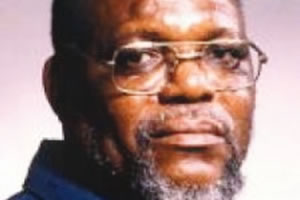Editorial Comment: President Mugabe spot on on rapists

 The past few years have seen Zimbabwe’s rape and sexual assault statistics rising at alarming levels. And, these are figures of reported rape cases mainly in Harare alone. Due to a number of reasons many rape incidents are not reported. In 2012, Harare recorded 824 women and girls raped up from 801 recorded in 2011.
The past few years have seen Zimbabwe’s rape and sexual assault statistics rising at alarming levels. And, these are figures of reported rape cases mainly in Harare alone. Due to a number of reasons many rape incidents are not reported. In 2012, Harare recorded 824 women and girls raped up from 801 recorded in 2011.
If Harare records such grim figures, what was the national outlook like? And, what will it be like when the 2013 rape figures are released?
The rise in sexual assault and rape cases would give an impression that there are no laws to deal with rapists and sexual molesters.
This is far from it. Our courts have over the years been reviewing the sentences they pass against rapists, but it looks like these laws are not deterrent enough.
This is why on Tuesday, President Mugabe advocated deterrent sentences for potential rapists at a luncheon hosted by the Ministry of Local Government, Public Works and National Housing to celebrate the official opening of the First Session of the Eighth Parliament.
President Mugabe did not mince his words as he told guests that Government would take stern measures against rapists, including the possibility of castration – “that which makes him rape must go”.
People were reminded that in the past, rape used to be punishable by death, but human rights campaigners had protested against the death penalty, arguing that it was inhuman.
The President lamented the double standards by these human rights activists who fail to see that rape “dehumanises a person”.
Indeed rape has dehumanised and traumatised many women, young and old alike.
Despite the deterrent sentences, many rape victims feel that rapists are getting away with murder.
Some bribe their way out of being prosecuted, while others serve less than half of their sentences and when released become marauding beasts pouncing on little girls, young and even elderly women.
There has been a lot of formal and informal debate about the reasons behind the rape culture, and why the seeming stiff sentences are not deterrent enough.
However, the nation cannot remain in the same position where the courts say something, human rights activists another and the victims suffer.
These positions do very little to help victims of rape, some of whom end up getting sexually transmitted diseases, including the deadly HIV and Aids virus.
As we watch the figures rising, the victims are getting a raw deal. Absence of desirable justice is like a second rape to them.
Thus President Mugabe’s radical call or warning, which is not unique to Zimbabwe, should be a rallying point for the nation, especially our legislators to revisit the many issues surrounding the rape culture.
Failure to act decisively by our legislators would be sending a message to would-be rapists that they can do rape with impunity, and still get away with it.
It is also time to examine the intervention methods used in dealing with issues of rape, starting from the victim, family, faith healers, law enforcement agents and the courts.
Why, for example do faith healers tell their patients to sexually assault a baby girl or elderly woman in order to get healed of HIV and Aids? Do we need to revisit our awareness programmes?
However, what is most perplexing about the rape culture is that the majority of victims are raped by men they know, men they are related to – fathers, brothers, uncles, grandfathers, in-laws etc. They threaten their victims with death if they report them.
Cultural norms and values have also been an impediment in dealing with the rape culture with some families preferring to deal with the problem at the family level. This has resulted in many rape cases not being reported to the police.
President Mugabe has thus given the nation a big challenge.
Are they happy to live with rapists who can continue to commit such heinous crimes or they are willing to protect victims of rapists by ensuring that they suffer for their dehumanising acts?
By taking the rape issue very lightly, is the nation committing the “second rape” against the victims?
The ball is in our court to deal with this inhuman and violent issue once and for all.
And, Parliament will give the nation direction by enacting laws that will ensure that rape does not ever again become an issue.








Comments